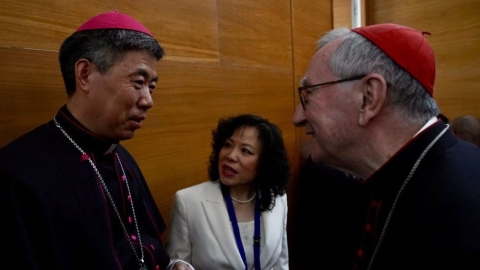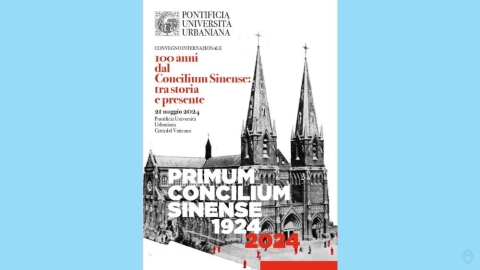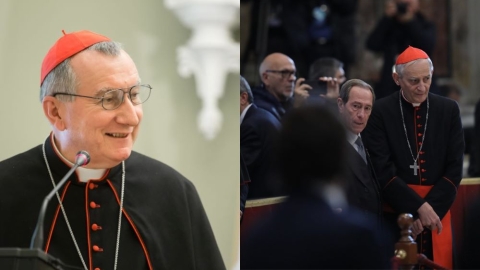The Holy See Pleads Against the Use of Nuclear Weapons

The Holy See made its voice heard once again at the United Nations on the question of nuclear weapons. Echoing the thoughts of Pope Francis, who declared in August 2023 that “possessing atomic bombs is a sin,” Archbishop Gabriele Caccia pleaded for a universal ban on nuclear testing.
It was under the pontificate of Pius XII (1939-1958) that the highly sensitive question of nuclear power burst into the ethical debate. The Pope based his posiiton on the criterion of proportionality to condemn the use of new weapons:
“When the damage caused by war is not comparable to that of tolerated injustice, one may have the obligation to suffer the injustice,” he declared in his Address to the International Office of Documentation of Military Doctors on October 19, 1953.
In other words, nuclear weapons were deemed immoral, considering its military use and capacity of causing human and natural damage disproportionate to any military aggression.
Pius XII’s reflection evolved slightly at the end of his pontificate, but nevertheless it was under subsequent popes that judgments on nuclear weapons were developed by the Church. Political aspects were also taken into account, especially when deterrence became bilateral and was seen in light of the relationship between the superpowers (United States and the Soviet Union).
At the same time, reflection on the possible control of nuclear weapons has also developed. Little by little, the magisterium refined its moral judgment until John Paul II declared in 1982 that “under current conditions, deterrence based on balance, not certainly as an end in itself, but as a step on the road to progressive disarmament, can still be judged as morally acceptable.”
We can thus summarize the judgment of the magisterium from John XXIII to John Paul II: Temporarily, nuclear weapons, insofar as they contribute to deterrence, cannot be banned. Only their indiscriminate use should be prohibited, but the ultimate goal is to achieve the total prohibition and destruction of nuclear weapons.
The pontificates of Benedict XVI and Francis mark a significant change of direction that is justified by the proliferation of atomic weapons and the end of the East/West polarization which calls into doubt the prior thinking on the notion of deterrence:
“What about governments that rely on nuclear weapons to guarantee the security of their countries? With countless people of goodwill, we can affirm that this perspective, apart from the fact that it is fatal, is completely fallacious,” declared Benedict XVI on January 1, 2006.
Pope Francis happens to be – on this specific issue – on the same line as his immediate predecessor.
(Source : ONU – FSSPX.Actualités)
Illustration : Photo 51115874 © Ig0rzh | Dreamstime.com





